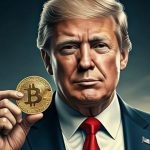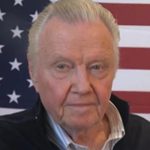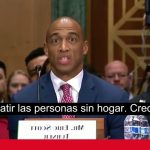Jae C. Hong/AP
- Elon Musk referred to himself as a ‘free speech absolutist’ and criticized Twitter for censorship.
- Musk has threatened to sue bloggers for critical coverage and fired employees for disagreeing with him.
- “Seems @elonmusk is a free speech absolutist… unless it involves safety concerns IMO,” a former employee tweeted.
Elon Musk on Saturday criticized Twitter for “failing to adhere to free speech principles,” which he said “fundamentally undermines democracy.”
The Tesla CEO, who has previously referred to himself as a “free speech absolutist,” has a track record of silencing critics with threats of lawsuits and firing employees who disagree with him.
“Seems @elonmusk is a free speech absolutist… unless it involves safety concerns IMO,” tweeted John Bernal, a former Tesla employee who was fired after he posted YouTube reviews of Tesla’s autopilot functions on his channel, AI Addict.
Bernal’s video reviews contained only end-user features and included footage of the car’s autopilot disengaging, which caused Bernal to take control to avoid dangerous situations, including a possible crash.
“I was fired from Tesla in February with my YouTube being cited as the reason why. Even though my uploads are from my personal vehicle off company time or property with software I paid for,” Bernal said in a video update posted earlier this month.
Bernal did not immediately respond to Insider’s request for comment.
Bernal’s firing is not the only example of Musk taking action against public criticism. In one instance, Fast Company reported that Musk found the identity of a would-be anonymous blogger who posted a negative stock analysis of Tesla and contacted their employer, threatening to sue, according to the blogger.
The poster deactivated his social media accounts and stopped posting about Tesla altogether.
“I do not know what Mr. Musk’s precise complaints are about me. I do not believe he has any valid legal claim, and I would have no trepidation in defending myself vigorously were he to bring any claim,” Montana Skeptic wrote in their farewell post. “My response to his threats was simply to protect my employer and preserve my employment.”
In another incident, a journalist who had been critical of the Tesla Model X launch event was called by Musk personally and had their order for a Model X canceled.
Former employees have reported being fired for disagreeing with the CEO, for reporting racist harassment, or for simply being in his way.
Musk has denied allegations of rage-firing employees and says his criticism of Twitter is based on a fundamental belief in freedom of speech. He argued in a tweet that since Twitter is “a de facto public town square,” the company’s posting policy “undermines democracy.”
Twitter operates with terms of service that users are required to adhere to in order to access the platform. First Amendment protections only apply in circumstances where the government, not a private business, imposes punishment for protected speech.
In another tweet, Musk asked “is a new platform needed?” which, to some, signaled a possibility that the Tesla CEO would create a new social media platform.
Musk did not immediately respond to Insider’s request for comment for this article.
Former Twitter CEO Jack Dorsey responded to Musk’s tweets, saying “the choice of which algorithm to use (or not) should be open to everyone.”
Powered by WPeMatico






